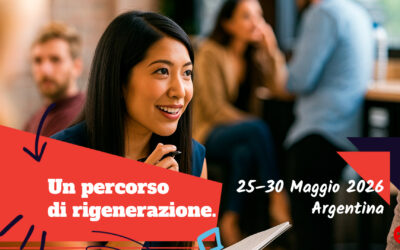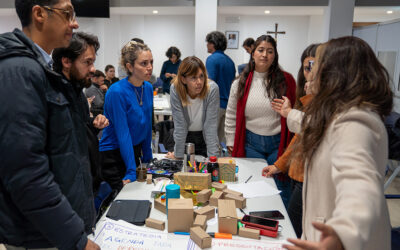 Four questions and answers off the cuff. The Pope’s words were the most touching moment of the Pentecost Vigil at which 200,000 faithful from many ecclesial groups gathered on May 18, 2013. “I know your questions. . . it’s the truth!” Yet his answers were spontaneous, and they engaged those present in profound silence. He was first questioned on how he reached the certainty of faith and how we are to overcome our fragility. He responded with a story: “I had the grace to grow up in a family where the faith was lived out in a very simple and concrete way. It was especially my grandmother who taught me the path of faith.” “She spoke to us about Jesus and taught us the catechism. On Good Friday she brought us to the candle procession. At the end of the procession came the dying Jesus, and our grandmother would make us kneel. She would tell us: he is dead, but tomorrow he will rise! I first received the Christian message from my grandmother!” Then came the Pope’s invitation to abandon all fear: “We’re fragile, we know that, but He is stronger. With the Lord we are certain, the faith grows with the help of the Lord. . .” . What is the most important thing on which we should fix our sights? “The most important thing? Jesus. If we move forward with an organization, but without Jesus, we go nowhere.” And he invited all to live in “synergy with the Holy Spirit”. Not so much to talk but to give testimony by the way we live. How should we live so that the Church may be a poor Church and for the poor? What can our contribution be to the Church and to society in this time of crisis that involves public ethics? “Living the Gospel is the main contribution we can give. The Church is not a political movement, nor a well-organized structure. We aren’t an NGO, and when the Church becomes an NGO it loses its salt and has no taste, it’s only an empty organization made up of many structures.”
Four questions and answers off the cuff. The Pope’s words were the most touching moment of the Pentecost Vigil at which 200,000 faithful from many ecclesial groups gathered on May 18, 2013. “I know your questions. . . it’s the truth!” Yet his answers were spontaneous, and they engaged those present in profound silence. He was first questioned on how he reached the certainty of faith and how we are to overcome our fragility. He responded with a story: “I had the grace to grow up in a family where the faith was lived out in a very simple and concrete way. It was especially my grandmother who taught me the path of faith.” “She spoke to us about Jesus and taught us the catechism. On Good Friday she brought us to the candle procession. At the end of the procession came the dying Jesus, and our grandmother would make us kneel. She would tell us: he is dead, but tomorrow he will rise! I first received the Christian message from my grandmother!” Then came the Pope’s invitation to abandon all fear: “We’re fragile, we know that, but He is stronger. With the Lord we are certain, the faith grows with the help of the Lord. . .” . What is the most important thing on which we should fix our sights? “The most important thing? Jesus. If we move forward with an organization, but without Jesus, we go nowhere.” And he invited all to live in “synergy with the Holy Spirit”. Not so much to talk but to give testimony by the way we live. How should we live so that the Church may be a poor Church and for the poor? What can our contribution be to the Church and to society in this time of crisis that involves public ethics? “Living the Gospel is the main contribution we can give. The Church is not a political movement, nor a well-organized structure. We aren’t an NGO, and when the Church becomes an NGO it loses its salt and has no taste, it’s only an empty organization made up of many structures.”  Among the greatest dangers mentioned by the Pope were those of efficiency and of closing in on itself. Such closing in on oneself leads to illness: “The Church needs to come out of itself and start moving toward the peripheries of society. Obviously, when you go out, there will be accidents: “But I prefer a thousand times more a Church that is damaged than a Church that is sick from closing in on itself. Go out, go out!” This was the path the Pope was inviting all to follow in order to move away from a culture of confrontation and fragmentation and a “culture of waste”, and toward living a culture of encountering others, encountering Jesus and all our brothers and sisters, beginning from the poor, looking in their eyes and touching them with our hands in order to “touch the flesh of Christ and to take upon ourselves the sufferings of the poor.” How are we to confess the faith? “To confess the faith two virtues are needed: courage and patience, as we were reminded by the testimony of Brother Shabhaz Bhatti, Pakistan Minister who was murdered in 2011. We’re all on the path of martyrdom. Some give testimony to Christ by giving up their physical lives, some by living small martyrdoms throughout the day.” “A Christian should always respond to evil with good.” “Let us make these brothers and sisters feel that we are deeply united with this situation.” “Do you pray for these brothers and sisters in your daily prayers?”
Among the greatest dangers mentioned by the Pope were those of efficiency and of closing in on itself. Such closing in on oneself leads to illness: “The Church needs to come out of itself and start moving toward the peripheries of society. Obviously, when you go out, there will be accidents: “But I prefer a thousand times more a Church that is damaged than a Church that is sick from closing in on itself. Go out, go out!” This was the path the Pope was inviting all to follow in order to move away from a culture of confrontation and fragmentation and a “culture of waste”, and toward living a culture of encountering others, encountering Jesus and all our brothers and sisters, beginning from the poor, looking in their eyes and touching them with our hands in order to “touch the flesh of Christ and to take upon ourselves the sufferings of the poor.” How are we to confess the faith? “To confess the faith two virtues are needed: courage and patience, as we were reminded by the testimony of Brother Shabhaz Bhatti, Pakistan Minister who was murdered in 2011. We’re all on the path of martyrdom. Some give testimony to Christ by giving up their physical lives, some by living small martyrdoms throughout the day.” “A Christian should always respond to evil with good.” “Let us make these brothers and sisters feel that we are deeply united with this situation.” “Do you pray for these brothers and sisters in your daily prayers?”
 |
 |
During the final words to Pope Francis by leaders of the communities and ecclesial movements, Maria Voce also expressed her gratitude to the Holy Father and the Focolare’s commitment to “give a courageous and joyful testimony to the Christian life.” She shared some of her impressions with us: “his words touched our hearts” especially his continued insistence on the encounter with Jesus and prayer, which he came back to in all his answers, underscoring “the spiritual dimension of the Christian person: prayer and the encounter with Jesus that happens through people on the peripheries of society, on the outside. He rejected excuses and table strategies, while never denying the challenges. We need to look to Jesus and the rest will come as a consequence.” The president of the Focolare underscored the atmosphere of friendship and joy among the representatives of communities and movements. “I believe that the Pope, when he arrived, felt this joyful heart of the Church.” Giancarlo Faletti, co-president of the Focolare, stressed that the Pope emphasized the love of Jesus and of neighbour as the dynamic of life of those who look outwards: “He did not look at the movements just as a particular part of the Church, but he addressed all Christianity.” See the CTV transmission replay




0 Comments